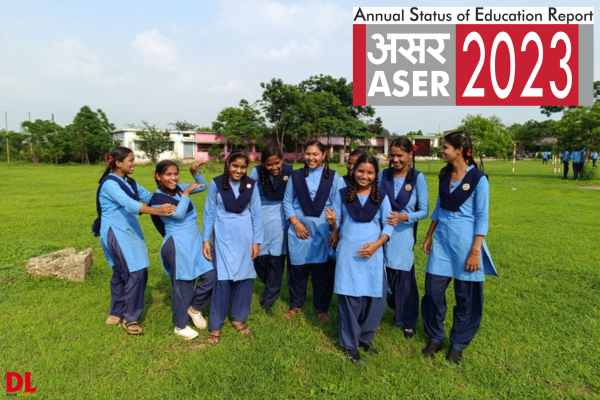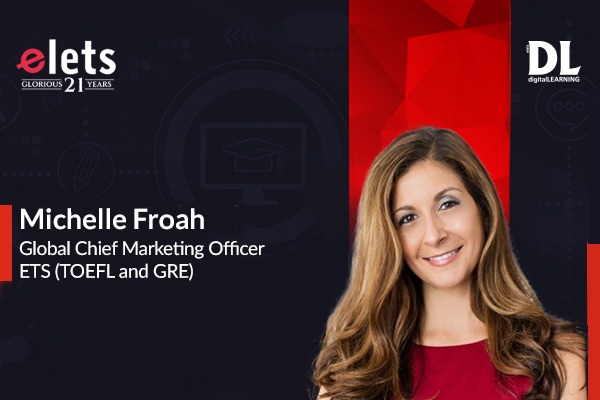Galaxy Kid aims to bridge this gap by offering personalized language learning experiences through AI technology. The primary focus of the application lies in enhancing speaking and pronunciation skills, shared Jerry Yiu, Founder & CEO, Galaxy Kids with Sheeba Chauhan of Elets News Network. Edited excerpts:
Can you please provide a brief description about your brand Galaxy Kid and its services.
Galaxy Kid is an application designed to assist young children in learning various languages using advanced AI technologies. The motivation behind this initiative arises from the observation of numerous students in Asia who have studied English or Chinese for many years. While they can read and write proficiently, they often struggle with speaking fluently. This challenge is exacerbated by the scarcity of native language teachers in some schools, and even when available, it’s challenging for teachers to provide individualized attention in large classrooms.
In essence, Galaxy Kid aims to bridge this gap by offering personalized language learning experiences through AI technology. The primary focus of the application lies in enhancing speaking and pronunciation skills. It is widely believed that correct pronunciation is crucial for young learners, as it not only boosts their confidence but also encourages them to communicate effectively in the target language.
To achieve this, the application enables students to practice speaking while receiving instant feedback. It records their speech, evaluates their pronunciation against native speakers’ standards, and provides a score. This constructive feedback mechanism not only instills confidence but also encourages more speaking practice. This emphasis on pronunciation is particularly valuable for beginners.
As students progress and expand their vocabulary and sentence structures, Galaxy Kid adapts to support more advanced language skills. The goal shifts towards facilitating real-life conversations and providing feedback, a challenging task without constant access to native speakers or teachers. AI technology steps in to enable freeflowing conversations, and the application identifies and corrects grammatical errors, ensuring a comprehensive language learning experience.
Your app basically uses AI as base technology. What are the other technologies that you use to make scorecards more valuable for the students and teachers to understand?
Indeed, we’ve seamlessly integrated OpenAI’s Chat GPT into our applications. Additionally, we’ve harnessed the power of speech recognition technology, incorporating our proprietary algorithms to fine-tune the learning experience, particularly catering to young students. In today’s world, where large language models can easily veer off-topic, we recognize the importance of maintaining a laser focus on language learning and ensuring user-friendliness.
To achieve this, we’ve taken a hands-on approach by conducting rigorous training sessions. Our team of dedicated teachers actively assists us in refining the language, sentences, and feedback mechanisms within the application. We aim to replicate the kind of responses and interactions that experienced teachers would provide to young students. This personalized touch enhances the language learning experience and keeps learners engaged and on the right track.
Language learning is not restricted to age. Can you tell us the reason behind choosing preschool kids as your target audience?
We initially started in the preschool segment, but we have since expanded our offerings. Our latest product, Quippy, addresses the fact that language learning doesn’t begin solely in preschool. While preschool lays a strong foundation, it’s also a relatively specialized market with limited focus from other companies. Consequently, we’ve invested significantly in animation, creating our own characters, songs, and music to motivate young children.
The idea behind our approach is to provide children aged three to four with an engaging and interactive learning experience. At this age, they may not be able to attend physical classes, so our application allows them to have fun and interact with our characters. As they grow older and progress to primary and secondary schools, they require a more serious and in-depth approach to language learning, including grammar.
Our new product, Quippy, is designed specifically for K-12 students while retaining the same underlying principles. We heavily emphasize personalization because we understand that language learning can be challenging. Key features of Quippy include a chat room where characters engage in conversations with students and correct their grammar during speaking. We also offer pronunciation feedback to ensure accuracy. Additionally, our learning path and interactive quizzes are aligned with educational standards. For example, in English, we align with the Common European Framework of Reference (CEFR) for older students.
Quippy serves as a valuable resource for students. It can be used in the classroom by teachers to create in-class activities, and it can also be assigned as homework for students to practice and reinforce what they’ve learned at home.
Quippy is an AI-powered Chinese learning solution for K-12 students that utilizes the HSK curriculum. Please describe the functioning of Quippy, how it is different from Galaxy Kids, and also explain to our audience about the HSK curriculum.
Currently, for Quippy, we have rolled out two language options: English and Chinese. As I mentioned earlier, all our content is carefully aligned with established standards. To illustrate, for Chinese, we align our content with the Hanyu Shuiping Kaoshi (HSK) standards. This is particularly important because many students learning Chinese may have aspirations to study in China in the future, and passing HSK tests is often a prerequisite. Therefore, our content is designed to complement the HSK curriculum, ensuring that what they learn can be applied effectively and reinforced through practice exercises.
Regarding our offerings for teachers, we have introduced a dedicated teacher dashboard, which sets Quippy apart from Galaxy Kids. This feature provides teachers with access to an extensive and well-organized library of graded content, categorized based on the Common European Framework of Reference for Languages (CEFR) or HSK levels. Teachers can easily search and locate content that suits their specific teaching needs.
Furthermore, they have the flexibility to add or remove content based on their unique requirements. This versatility allows them to utilize Quippy for various purposes, including in-class activities, assignments to be completed at home, or as part of homework exercises.
The content accessible through the dashboard for both teachers and students, is it created by specific educators, or is it generated by artificial intelligence (AI)?
So, currently, the content available is created by teachers. However, in terms of responses, we incorporate AI to detect the intention behind the questions asked. For instance, when a question is posed, there can be various ways to answer it. Let’s say the question is, “Am I hungry?” One could respond with, “Yes, you are hungry,” or in a different manner. The AI has the capability to discern the underlying intention. If the response aligns with the intended meaning, it’s marked as correct. However, if the response deviates from the intended meaning, the AI recognizes it as incorrect. This functionality empowers teachers to utilize a diverse range of content for assigning homework and assessing students’ comprehension. Students may encounter longer paragraphs to read and answer questions about, and even if their responses vary slightly in wording, as long as the intention is accurate, the teacher will recognize it as correct.
Over 7000 languages are spoken across the world. Galaxy Kids is pioneering in offering speaking-focused language learning solutions for kids. What languages are you targeting from such a huge pool of options available and why?
In essence, we have developed a platform with a range of features designed to simplify the process for teachers. This platform allows them to easily create and assign activities for students to complete either at home or in the classroom. It offers a high degree of flexibility, and it’s worth noting that we can expand its language offerings. Currently, we’re primarily focused on English and Chinese due to customer demand, with schools expressing significant interest. However, our platform’s adaptability means that if there is a demand for additional languages, such as the recent request for German, we have the capability to incorporate them into the platform.
As an AI tutoring app, which aspect of language learning are you prioritizing the most, such as speaking, reading, or writing, and what is the reason for this emphasis?
In our preschool application, our primary emphasis is on developing speaking and listening skills. We recognize that students often learn English or Chinese in school but may lack opportunities for interactive conversation. Therefore, our focus is on creating an environment that motivates them to speak and listen effectively.
However, as students progress into primary school, secondary school, and the broader K-12 educational environment, we are expanding our offerings to include reading comprehension and literacy. This includes topics like learning Chinese characters. In this phase of education, the emphasis shifts towards reading, and we also consider the possibility of adding writing components in the future, although it’s not currently part of our offering.





























